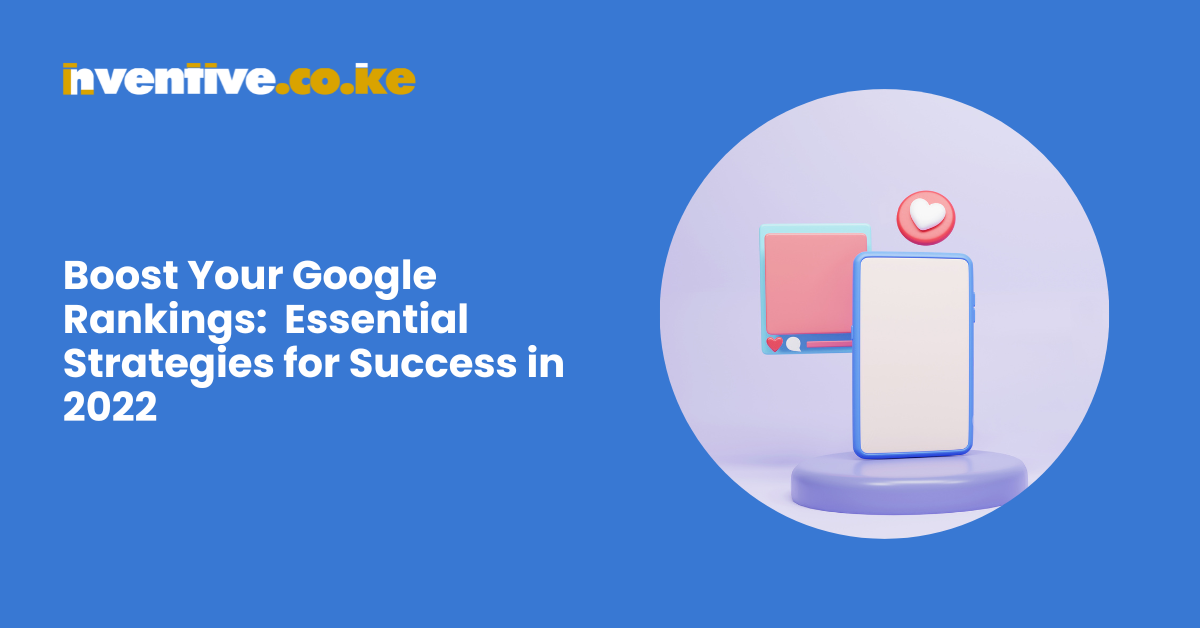

Discover six tried-and-true tactics for improving your Google rankings and increasing organic traffic to your website. From optimising website architecture to improving content and metadata, these strategies will help you succeed in SEO and increase your online presence.
A lot has happened in the SEO industry and google rankings since Google’s inception in 1998. One constant remains: your organic traffic is directly related to your search engine ranking positions. If your website ranks at the top of the search results and has a plethora of keywords in the Google index, you will receive an endless stream of traffic.
If your website is good but not visible in the SERPs, you will most likely receive little to no organic search traffic. In this post, I’ll break down the steps necessary to improve your Google SERPs. Having said that, I’m sure you’re just as eager to find out what comes next.
To rank among the top 10 SERPs in less than a year takes a lot of hard work, skill, and luck. This brings us full circle to the topic of today’s discussion: how to improve your Google ranking. Following these five methods will assist you in getting your website to the first page of Google, increasing sales and conversions.
Even the most effective SEO initiatives can fail because of poor website architecture and structure. Raise the Bar for Your Keyword Research
Discover keywords your site could rank for straight away and quality-vetted suggestions to help you conduct better research in less time. Free trial of Keyword Explorer! Conduct an audit of technical SEO To decide search ranks, the Google algorithm uses a huge number of signals in addition to machine learning and AI.
However, even today, paying attention to the fundamentals will put you ahead of many rivals. The essential steps for doing an SEO audit are listed below.
The number one factor affecting your search engine results is the quality and authority of your content. There is no alternative to excellent content, especially when conducting SEO marketing. The more visitors your site receives, the more authoritative and relevant it becomes because of the quality material you’ve generated with your target audience in mind. Develop your web writing abilities and establish yourself as a subject matter expert.
Each authoritative content page on your website has a specific keyword phrase that you should identify and target. Consider the search terms your reader could use to find that particular page.
Content has the most impact on search engine rankings over the page’s URL, title, and headers. The opening and closing paragraphs should contain your keyword phrase once or twice each, and the remaining paragraphs should contain it two to four additional times. Be in command. Link strategically to extra resources and information, both on the main website of your company and on other helpful websites.
Don’t forget to highlight these keyword phrases with bold, italics, header tags (particularly an H1), and other emphasis elements, but don’t go overboard. However, you still want your writing to read naturally. Never compromise your writing quality for SEO. The finest pages are those that are written for people, not search engines. To assist, learn more about SEO marketing.
We have undoubtedly made it clear that we care a lot about content. Likewise, search engines. One of the best ways to gauge how relevant a site is is by how frequently its information is updated, so make sure to do this. On a regular basis (every semester, for instance), audit your content and update it as necessary.
Your departmental news blog’s keyword-rich content creation can help improve your search engine rankings. Even shorter updates about the specific subjects you are aiming for can be used as blog posts. Link to relevant CMS webpages and blog posts when doing so will help the reader understand the subject matter better or provide them with further details.
The likelihood of receiving connections from other websites increases when a website is authoritative, and impartial, and helps users learn more about what they are interested in. This boosts your search engine optimization.
By including pertinent links within the content, you can increase your authority and trustworthiness. Try writing the name of the location in place of the “click here” links. In contrast to the “Michigan Tech Enterprise Program,” which is packed with keywords and will raise both your own and the page you are linking to in search engine results, “Click here” has no additional search engine value beyond the connected URL. Use descriptive links whenever
possible to link keywords.
Each page on your website should include a space between the tags for metadata—information about the page’s contents. If you have a CMS site that was created by the UMC web team, this information will already be pre-populated for you. However, as your site evolves over time, it is crucial that you check and update the metadata.
The page titles that appear at the top of a browser window and as the headline in search engine results are both a result of title metadata. The most significant piece of metadata on your page is this one.
The web team has created an automatic mechanism that uses your page title to generate the meta title for each webpage for people who have a CMS website. This emphasises the value of utilising carefully considered page titles that are packed with keyword words.
The textual description that a browser may utilise in your page search return is called description metadata. Imagine it as the window display for your website—a succinct and appealing summary of what is within, intended to entice visitors to come.
Rarely, if ever, is keyword metadata utilised to calculate search engine rankings. It doesn’t harm to include your keyword phrases in your keyword metadata, even if you should already be familiar with them. You should use a range of words and phrases. As a general rule, try to limit it to 3–7 phrases, each of which has 1-4 words. “Degree in computer science” is a wonderful example.
Use alt tags, or alternative text descriptions, to always provide your image and video media a description. They are essential, especially for people who use text-only browsers or screen readers, as they enable search engines to find your page.
These are just a few of the numerous strategies available to raise your search engine position.
SEO can seem overwhelming. It’s easy to get caught up in the paralysis of analysis and do nothing.
That said, it’s important to remember that even in 2022, simply paying attention to the basics, as outlined above, will position you for online success.
When developing your websites, we provide SEO and Google Rankings services. Lets Talk